publication-type: Research
-
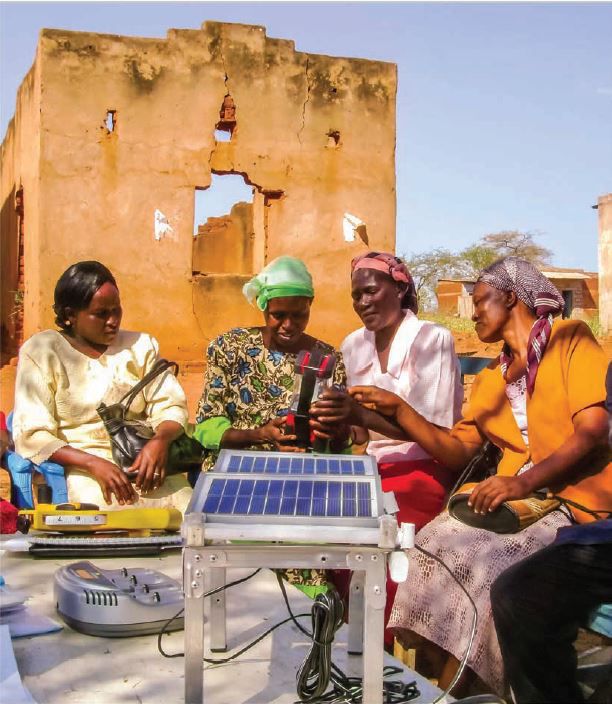
Poor People’s Energy Outlook 2016
Ending the scourge of global energy poverty has rightly become an international priority – but governments and the international community still lack the tools and approaches necessary to deliver on this important objective. One major reason for this is that current approaches do not meaningfully consider or understand the realities of energy-poor people or the…
-
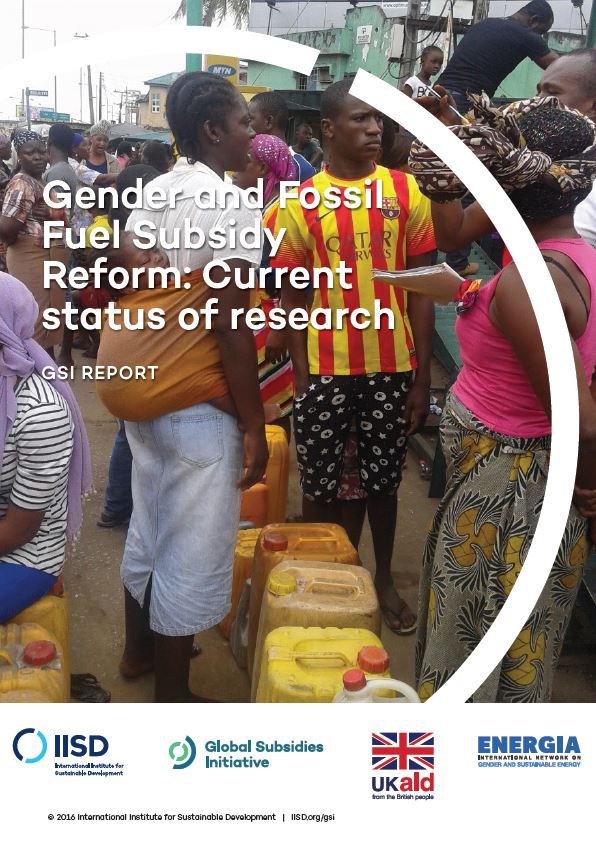
Gender and Fossil Fuel Subsidy Reform: Current Status of Research
This research project aims to investigate the impacts from fossil fuel subsidy reform on poor women in Bangladesh, India and Nigeria. This initial scoping report finds no primary, quantitative research on the question of the gender-differentiated impact of fossil fuel subsidy reforms. However, there is a large body of literature linked to energy access and…
-
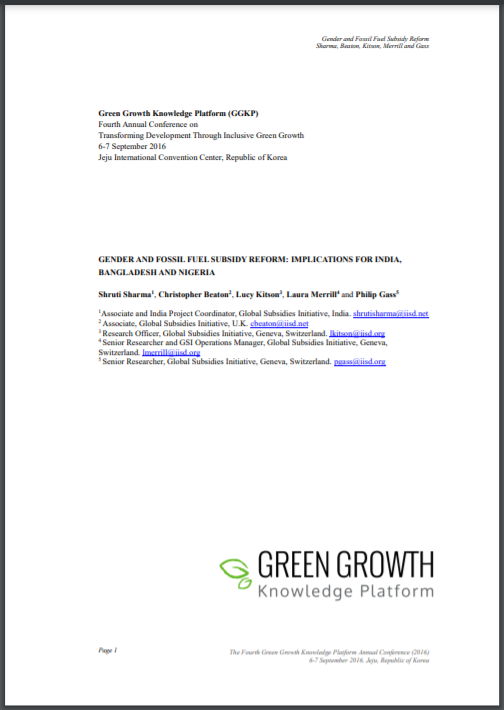
Gender and Fossil Fuel Subsidy Reform: Implications for India, Bangladesh and Nigeria
This paper reviews the available literature on the impacts of fossil fuel subsidies on women and gender empowerment. It is an input to a four-year research program on the issue coordinated by the Global Subsidies Initiative (GSI) of IISD. The review, undertaken in 2015, attempts to assess the impacts of fossil fuel subsidies on women…
-
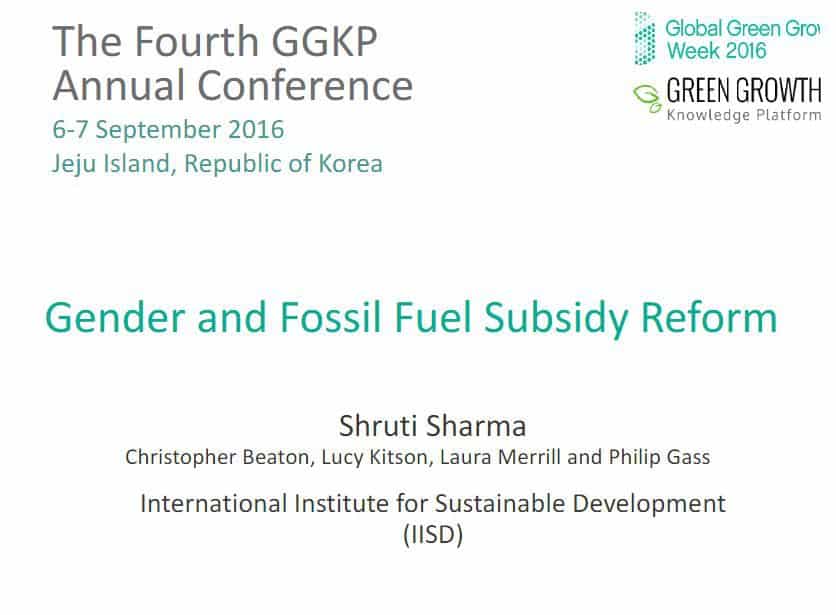
Gender and Fossil Fuel Subsidy Reform – Presentation
-
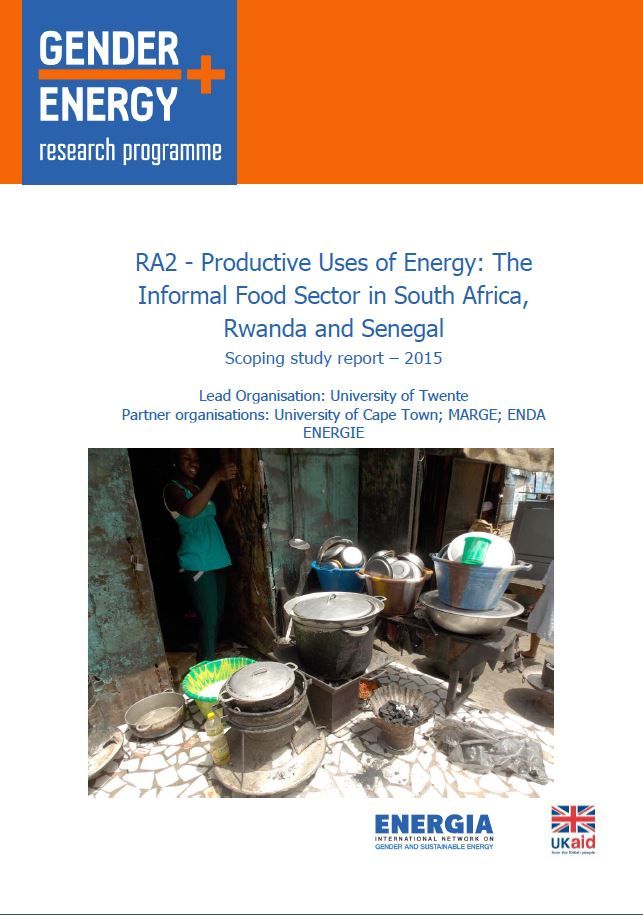
Productive uses of energy: The informal food sector in South Africa, Rwanda and Senegal
This report represents the Scoping Phase (Phase 1) of Research Area 2 – Productive uses of Energy – of ENERGIA’s Gender and Energy Research Programme. This Research Area applies a gender perspective to explore: (i) the energy sources used by micro and small enterprises in the informal food sector; (ii) the changes that may be…
-
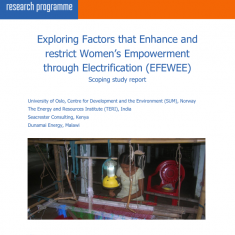
Exploring Factors that Enhance and restrict Women’s Empowerment through Electrification (EFEWEE) – Scoping study report
The overall objective of this independent research project is to examine how policy and practice may enhance women’s empowerment though electrification in rural areas in the South. We consider women’s empowerment as a process towards gender equality, hence a concept that requires analytic attention to women, men, girls and boys. We divide the work into…
-
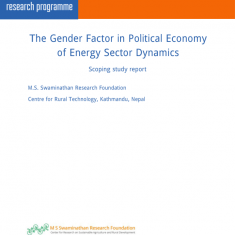
The Gender Factor in Political Economy of Energy Sector Dynamics – Scoping study report
This research proposal is based on the premise that it is necessary to include gender concerns in the political economy of energy access. In addition to a structural analysis of power in conventional concerns of political economy, we underscore the need for a gender analysis of political and economic processes to understand the strategic energy…
-
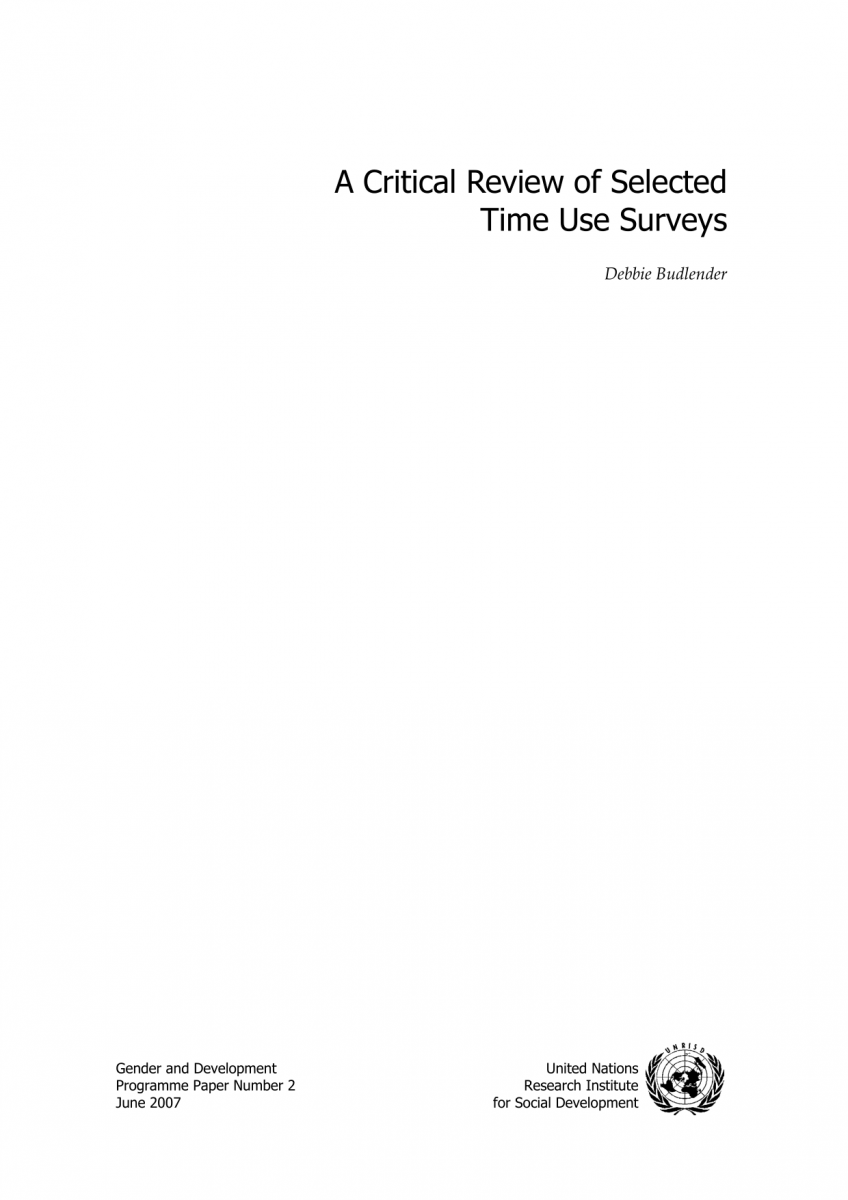
A Critical Review of Selected Time Use Surveys
This paper was prepared as part of the preparatory phase for the UNRISD research project on Political and Social Economy of Care. The overall aim of the project is to examine the way in which care is provided and allocated between the family/household, state, market and “community”, and its articulation with the commodity economy in…
-

What motivates women to buy?
-
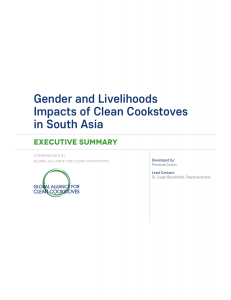
Gender and Livelihoods Impacts of Clean Cookstoves in South Asia
A study that measured the use of improved cookstoves in India, Bangladesh and Nepal found that women spend the equivalent of more than two weeks each year collecting firewood in India. Households using cleaner, more efficient cookstoves saved significant amounts of time and used less fuel than those using traditional stoves. Women who saved time…
-
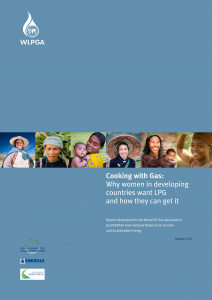
Cooking with Gas: Why women in developing countries want LPG and how they can get it
ENERGIA developed a report for the World LP Gas Association, investigating the need for access to clean cooking energy for women and girls. The World Energy Outlook estimates that almost 1.3 billion people living mostly in developing Asia or Sub-Saharan Africa and in rural areas are without access to electricity. Reports estimate that another 2.6…
-
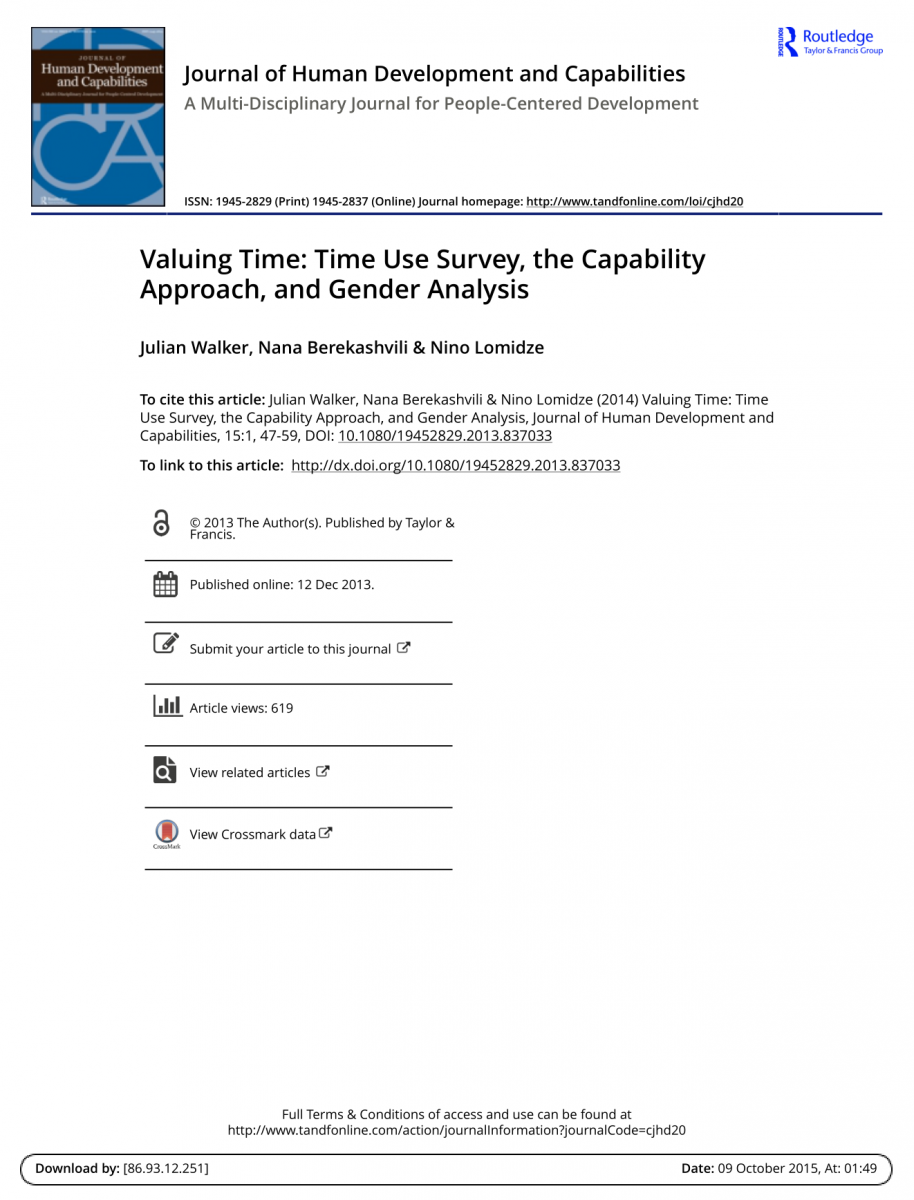
Valuing Time: Time Use Survey, the Capability Approach, and Gender Analysis
Time use survey is one of the fundamental, and most widely employed, research tools used to bring a gender perspective to project planning. However, narrow interpretations of time use data can distort the understanding of how project-induced time use changes affect women and men’s well-being. This paper argues that the application of some of the…

